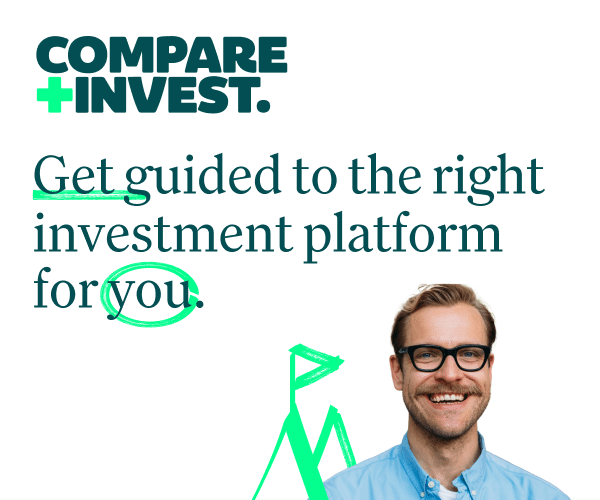‘An anti-capitalist financial planner explains how to make ethically sound investments.’ What a headline. It certainly caught my eye when it popped up on Business Insider a few weeks ago.
Let’s ignore the fact that the financial planner in question, River Nice, has a rather interesting name. Let’s also ignore the fact that their method of client acquisition (TikTok) and their target demographic, LGBTQ+ millennials, is entirely alien to the vast majority of advisers.
I want to deal with the anti-capitalist tag, because it’s really quite something to claim that a member of the financial planning profession, a profession that ostensibly revolves entirely around how to allocate people’s capital, can somehow work outside of that system.
For the avoidance of doubt, I don’t want to address the merits, or lack thereof, of capitalism itself here (I don’t have all year). This is purely a semantic exercise on where the definition of a financial planner ends and that of anti-capitalist starts.
Right at the top, here’s how Nice’s approach is described: ‘Instead of leaning on the stock market, real estate investments, or passive income schemes, the Philadelphia-based, self-avowed anti-capitalist advises clients on how to engage in ethical investing to reach their financial goals.’
There’s already a potential contradiction between our anti-capitalist and our financial advisory outlooks here. Let’s say you do indeed eschew the stock market. But couldn’t a listed company – in theory at least – do ethical things? If so, wouldn’t providing that company with more capital be a good thing to do? Then wouldn’t the job of a financial planner with a client who wanted to invest ethically be to tell them to invest more money in that company?
Nice has no time for companies that don’t pay their staff incomes in proportion to the profits generated for their corporate overlords. But a purely capitalist financial adviser shouldn’t either; there is a growing amount of evidence that companies with higher ESG scores actually generate better returns, so it would also be an economic as well as a moral imperative to seek them out for your client.
(Side note: if by not leaning on the stock market, Nice takes being anti-capitalist to mean tapping private markets instead, their clients better have high risk tolerances and/or chunky wallets.)
Security means stock markets
To be truly anti-capitalist, by definition, would involve eschewing markets entirely. Fortunately, Nice doesn’t go quite that far. ‘I don’t see a way for somebody to have security in old age unless we are utilizing the stock market to some extent.’
Security in retirement is obviously good for a client’s financial and emotional welfare — again the core thing a financial planner should be focused on. If you want a decent pension, particularly with state support dwindling, you really do need to be in equities. And a lot of them. For a long time.
If you’ve cost your client a pension because you’ve not taken that eminently sensible decision on their behalf, then surely your anti-capitalist values are indeed in conflict with your duties as an adviser?
There’s a reason that the adage ‘a poor financial planner is a poor financial planner” still does the rounds. It’s not much good having deep conversations with clients about how to live a fulfilled life when they don’t have a penny to spend. If the way you’ve treated their investments and the system of capital in which those investments sit has left them destitute, then they are going to struggle to do much of that flourishing.
Nice adds, ‘the entire economic model of the United States and the majority of the world is not a fair model.’
No doubt. I know a fair few left-leaning IFAs that would agree with them, and a fair few right-leaning ones that would too. But thinking so does not have to stop you doing the absolute best you can for your client, financially speaking.
Life planning not financial planning
The article continues, outlining a few more unsurprising facts about Nice’s approach. He often avoids investments that support the fossil fuel industry, private prisons, and border control agencies, for example.
That much was to be expected. But then attention turns to a few striking statements where anti-capitalism and being a financial adviser don’t actually seem to be much in conflict. Quite the opposite, in fact. ‘[Nice’s approach] might involve a redistribution of wealth to people who need it, for example, using your excess earnings to donate to organizations that help refugees.’
That is kind of anti-capitalist, but it’s also brilliant modern-day financial planning. Giving offers more joy than receiving. Seeing the good your money can do is a deeply rewarding experience. You can’t take it with you, so there’s no point in hoarding it.
All of these concepts are moving higher and higher up the conversation with advisers I speak to, advisers who might occasionally describe themselves as life planners or coaches. It’s just not about how much you have, it’s about what you use it for. Particularly if they have more than enough already, why not help your client fight The Man, if that’s what would make them happiest?
The article adds ‘Nice’s primary goal is to give people a sense of ‘autonomy’ when it comes to their finances.’
‘They added that helping people remove money as a stressor would hopefully give people the time and resources to help others.’
You might say the quickest way to remove money as a stressor is to create more of it, and capitalist investing does just that. But fostering a sense of financial control speaks much more to a planner’s ability to understand their client’s emotional connection with money, why they spend and save in the way they do, and what their main concerns are not just in their financial lives, but in their personal ones too.
Helping a client feel like they are suddenly in control of their money is one of the most powerful services a planner can provide. Offering that service has little to do with one’s thoughts on corporate power, worker rights, or whatever else about the global economy – or whether or not your client has maximised their returns.
Can you be a pure investment adviser and an anti-capitalist? That depends. If you are motivated only by dollar signs, the only imperative has to be to put your money where the most efficient capital is. After all, that’s where the highest return is.
But deep down, that’s not how a lot of humans – and advised clients – are built. They can truly benefit from conversations about giving, about volunteering, about building a legacy.
So can you be a financial planner and an anti-capitalist? Let’s be honest, it’s still unlikely. But maybe not as unlikely as we first thought, if we take some lessons about the value of life planning from River Nice.
Photo by Tingey Injury Law Firm on unsplash.com



